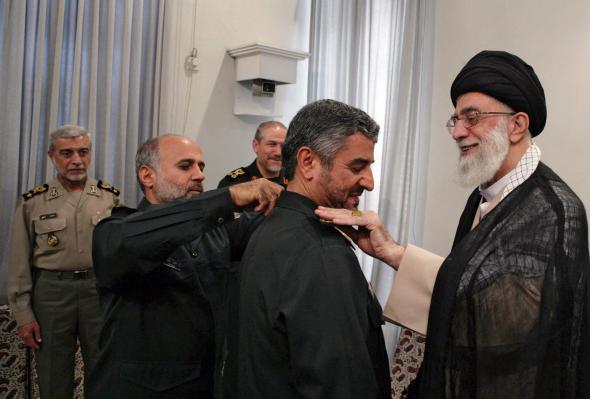We are in an era of unacknowledged invasions. In military operations ranging from Russia’s incursion into eastern Ukraine to the activities of Iranian military advisers in Iraq, governments refuse to admit what they’re up to even when those engagements are widely reported in the international media.
As the U.S. begins carrying out its first airstrikes against ISIS under the new strategy announced by President Obama last week, we’ve seen the rise of another related phenomenon: the unacknowledged alliance.
Last week there were media reports that Ayatollah Ali Khamenei had approved cooperation with the United States in the name of fighting ISIS. If those reports are true, the supreme leader doesn’t appear willing to acknowledge them publicly. Shortly after Secretary of State John Kerry said Monday that the U.S. would be open to talks with Iran about the crisis in Iraq, Khamenei personally rebuffed the offer, telling the state news agency IRNA, “I saw no point in cooperating with a country whose hands are dirty and intentions murky.” He went on to suggest that the U.S. was using the crisis as a “pretext to do in Iraq and Syria what it already does in Pakistan—bomb anywhere without authorization.”
The U.S. side has been sending some mixed signals. Last week Kerry had ruled out cooperation with Iran due to its “engagement in Syria and elsewhere.” Iran, after all, is a major backer of Bashar al-Assad’s government, which, in addition to its many other crimes, the U.S. accuses of facilitating the rise of ISIS. (Syria has since executed a rapid about-face and is now trying to sell itself internationally as an enthusiastic member of the anti-terror coalition.)
Iran was not among the more than 20 nations represented at a conference in Paris this week devoted to assisting the Iraqi government in its efforts against ISIS, a snub lamented by the Iraqi foreign minister.
Iran (and to a less clear extent Syria) is already a de facto ally of the U.S. and Europe in this mission. The efforts of Iran and the U.S. have been complementary, even if they weren’t coordinated. For instance, when Iraqi Shiite militiamen and Kurdish peshmerga fighters retook the northern Iraqi town of Amerli earlier this month, it was made possible by both Iranian military advisers and American airstrikes.
Washington and Tehran are on the same team in Iraq—things are a bit more complicated in Syria—but neither government seems ready to admit it yet. At a certain point, the military forces battling the same enemy in the field might start to wonder how long it will take the politicians giving them orders to get on the same page.
